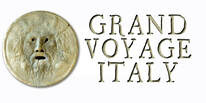|
Being a second-generation Italian-American, I wasn't affected by the Italian naming conventions. I once asked my mother why we never spoke Italian and she answered, "When we got married, I wanted an 'All-American" household, so we only spoke English around you kids." I'm certain one reason for this was to lessen the impact of racial bias against her kids at the time. This might also be the reason why I was named "Jerry"--as my mother told me, "I thought of 'Jerry' after watching a Jerry Lewis movie while I was expecting you. It sounded very American." While my birth certificate says "Jerry", I had no idea my legal name was "Jerry" until at age 13, I got a copy of my birth certificate to get my working papers. "Jerry"? Well, that was a lot better than "Gerald", my baptism name, which I could barely pronounce properly when I was little. Even so, everyone in my family knew me as "Gerald" until I ordered them to stop calling me that. Still today, many won't call me "Jerry". (To add to my confusion, Saint Gerald was French!). Being the second born son, I should have been named after my mother's father, Salvatore Vetri. That would have been nice, since my Dad's lifelong nickname was Sal, even though he was born Saverio. Since I was born 11 years after Salvatore's passing, perhaps my mother felt less obliged to name me after him. My sisters and brother who came before me met the same fate with their names. The oldest of us--the twin sisters--Barbara and Joan should have been named Caterina and Mariantonia, Caterina being my paternal grandmother's name, and my maternal grandmother being Caterina. (Barbara was the oldest by three days... YES, they were born three days apart, but that's another story.) Kenneth, my older brother, should have been named Sergio, after my paternal grandfather. My sister Joyce should have been named after one of my aunts, perhaps Antonia or Rosa. Although I know that Barbara, Joan, Kenneth and Joyce are my siblings, I have no idea who they were named after since those names are unknown in our family tree. Only their middle, confirmation names reflect names of uncles or aunts. Perhaps other movies my mother watched while she was pregnant for each of them influenced her... The twins? Barbara Hutton and Joan Crawford were famous during the 1940s when the Twins were born, Joyce Reynolds was a well-known, All-American looking actress when my sister Joyce was born. But Kenneth? There really were no famous actors or performers named Kenneth when my brother was born--and it's a very British name, at that. Mom probably just liked the sound of it. As for me, I really think I would have preferred to be named Francesco, Giovanni, or even Anselmo after one of my my uncles. "Jerry" never really suited me. And here's an interesting note about my father's name, Saverio... There is no Saverio in our family tree, and since my great-grandfather Anselmo was adopted, there was no maternal grandfather to name him after. It seems the name was given to my father (second son of Sergio) as a "votive name". Saverio means "second home" or "new home". My grandfather traveled to America 2 times before bringing over is wife and three children, 7 year-old Anselmo (named after my great-grandfather), 4 year-old Saverio and baby Antonia. Perhaps Saverio was born at the moment my grandfather decided to take the first steps on emigrating. Saverio. New Home. It suited Dad. How to properly name an Italian child... . The basic convention goes like this:
Be aware that there are exceptions to this naming custom that preclude this assuming your ancestors adhered to these conventions. In the case of orphans, they would have no idea of parents' names. For someone estranges from his family, he might not want to use their names. It is also possible that the first born son might have died, so they might have also given the same name to a second born son who survived. Many children did not live to adulthood in the nineteenth century and earlier. It is also very possible that your ancestors didn't keep to these conventions, for instance, many named their first sons after a hero. For example a hero in southern Italy (The Two Kingdoms of Sicily) in the early 1800s was Guglielmo Pepe, so an ancestor in this time period could be named after him. A final example of exceptions to the naming custom can be seen in the nontraditional family of my great-great-grandparents, Pasquale and Rosa. They were great opera fans who named all of their children after characters from their favorite operas. Due to theses types of exceptions, you cannot use the Italian naming tradition to assume an ancestor's name. When doing genealogical research another problem can arise when finding several people living in the same town at the same time, all with the same first and last name. Think about it a second. If someone named Giovanni had five sons, all of them could have named their first born sons Giovanni, resulting in confusion as to which one is your gr-gr-grandfather and which are merely distant uncles. The same would hold true when researching the maternal members... Nonna Rita might have several Ritas that were named after her. They might even have been born in the same year! Remember, families were often quite large, especially in the rural, agricultural south. This shows that although it seems naming conventions might help you discover your ancestors, they might also confuse the issue. When in doubt, it might be a good idea to hire a genealogical research professional to make sure you find the right people in your family tree. --Jerry Finzi For help in researching your ancestors, the Facebook group
Italian Genealogy is highly recommended by GVI. There are several professional researchers who are members who freely offer their advice and who can be hired to help find your ancestors. 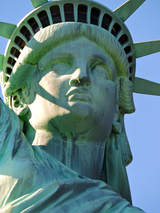 More often than not, I'm shocked at the blatant racism I see on Italian Facebook pages and felt compelled to leave a response to someone who claimed that most immigrants today offer nothing to American society and exist well below the poverty line... in other words, "we don't want to support them" or "we don't want them" or "they have no skills anyway".... My response to these people: Many would argue that when our grandparents and great-grandparents came here, they were also living below the poverty line--in fact, poverty was one of the main reasons for them coming to America. They also didn't speak English at all. Most Italians listed their profession as "Laborer" or "Farmer"... in other words, unskilled peasants. Often the father came first, working to earn enough to bring over his wife and children, as my Grandfather Sergio Finzi did. He sailed across the Atlantic, in steerage, in the middle of winter (when fares were cheaper) three times over the course of 5 years... the third time bringing his wife Caterina and three children (including my 4 year old father, Saverio). My father's family came from Molfetta and had a very tough life at first in Hoboken... a large family living in a tenement. (They would have another 5 children born here making them a family of 10). Pretty much the same with my Mother's family. Luckily, my grandfather was skilled as a tailor and found employment in a coat factory. As young children, my father and his brothers were tasked with walking the RR tracks to pick up chunks of coal that fell from the trains for the kitchen stove, which was the only source of heat in winter. They all had to leave elementary school early to help support their family. My father and one of his brothers bought a lame "Three-Legged Horse" and wagon and sold fruit and veggies to the people coming off the ships in the harbor. Another brother started his own grocery store in Hoboken. A couple of my uncles served in WWII and even my 65 year-old grandfather carried a U.S. Draft Card while my father worked in a military plant making springs for jeeps and tanks. My father became a fruit and deli man his entire life, always working for other people. Even as a child, I remember my father working long hours, night shifts and often even on holidays. And there was no overtime pay! My mother and her mother both worked in factories for "piece work"... paid by the piece. My mother bore the sweltering heat and airplane hum of industrial fans all day long as she worked at hot press machines making jewelry boxes... and crushed two fingers, bearing her crooked finger the rest of her life to show for it. She worked her way up to be a supervisor over 30 other workers. Somehow my parents housed, clothed and fed their 5 children and saved enough to buy a small six-family apartment house where I grew up, the rents from the other five tenants helping to support us. After work I remember helping my father as he maintained the building: putting on a new roof, repairing the chimney, fixing the furnace, doing plumbing and electrical, painting--whatever was needed to keep the tenants happy. He taught me that working hard was a good thing. My grandparents and parents definitely contributed to our society and created opportunities for their children... My parents were proud to have 5 children, lived to see 19 grandchildren and many great-grandchildren, all living as Americans today. Several of us owned our own businesses, hired employees, bought nice homes... and lived the American Dream. I remember the pride on my parent's face the first time they came into Manhattan to see my 5000 square foot photo studio. It took our family three generations to succeed in America--three generations to fully assimilate. America gave us that chance. As Americans, we all have to remember that even people who are desperate enough to enter our country through unusual means for asylum (like the Cuban boat people or Central Americans trudging through the desert) in fact should have a chance at a new life. There are no laws against crawling or swimming out of desperation onto our shores. Not everyone wanting a better life comes to our country on a jumbo jet through airport Customs. For those of you who have never read the entire text of the poem that is emblazoned on the Statue of Liberty: New Colossus Not like the brazen giant of Greek fame, With conquering limbs astride from land to land; Here at our sea-washed, sunset gates shall stand A mighty woman with a torch, whose flame Is the imprisoned lightning, and her name Mother of Exiles. From her beacon-hand Glows world-wide welcome; her mild eyes command The air-bridged harbor that twin cities frame. “Keep, ancient lands, your storied pomp!” cries she With silent lips. “Give me your tired, your poor, Your huddled masses yearning to breathe free, The wretched refuse of your teeming shore. Send these, the homeless, tempest-tossed to me, I lift my lamp beside the golden door!” My purpose in penning these words is not to let people forget that we are all immigrants and owe thanks to the struggles of those who went before us--AND who come after us. In my opinion, our country is stronger for their efforts and contributions. I've lived in another country and know for certain that we have something special here.
Never forget that WE were immigrants, too. Jerry Finzi |
On AMAZON:
|

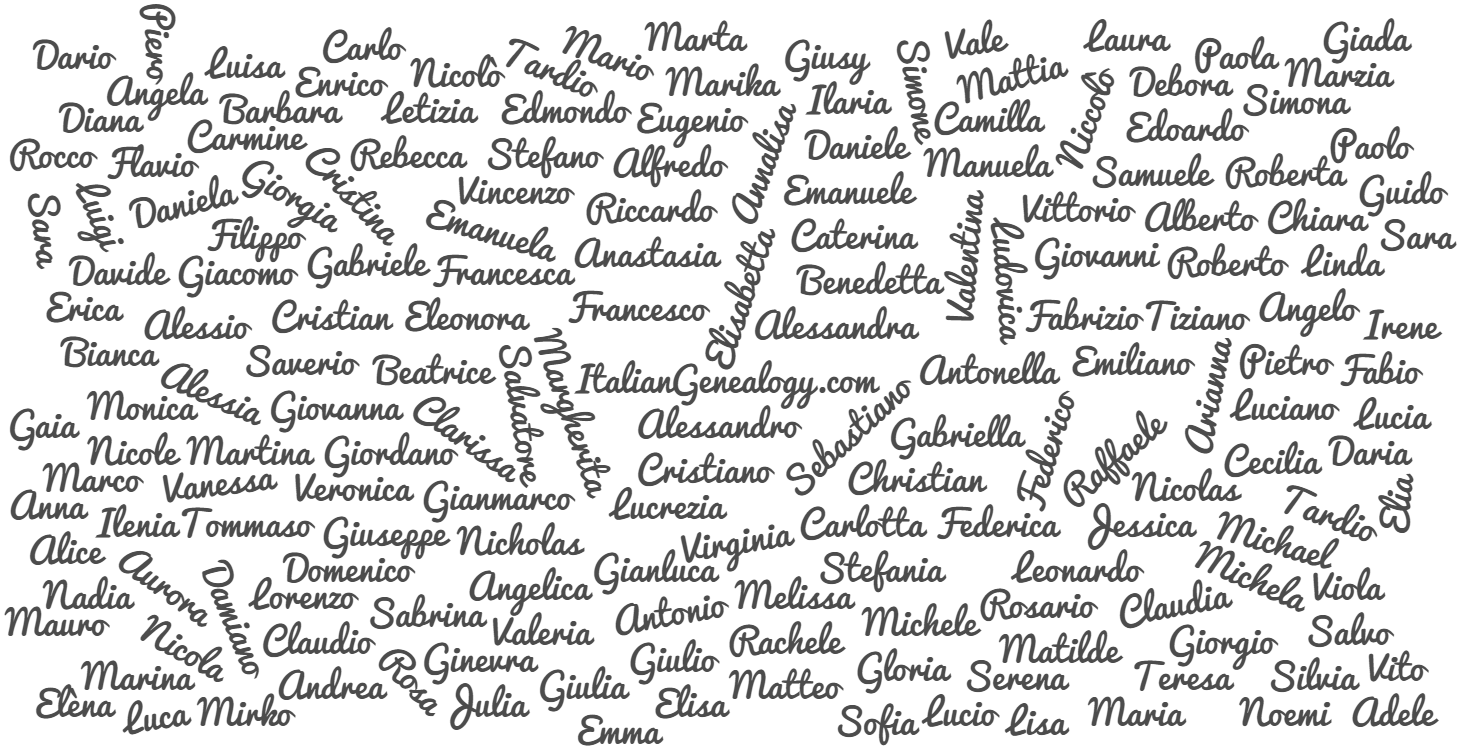
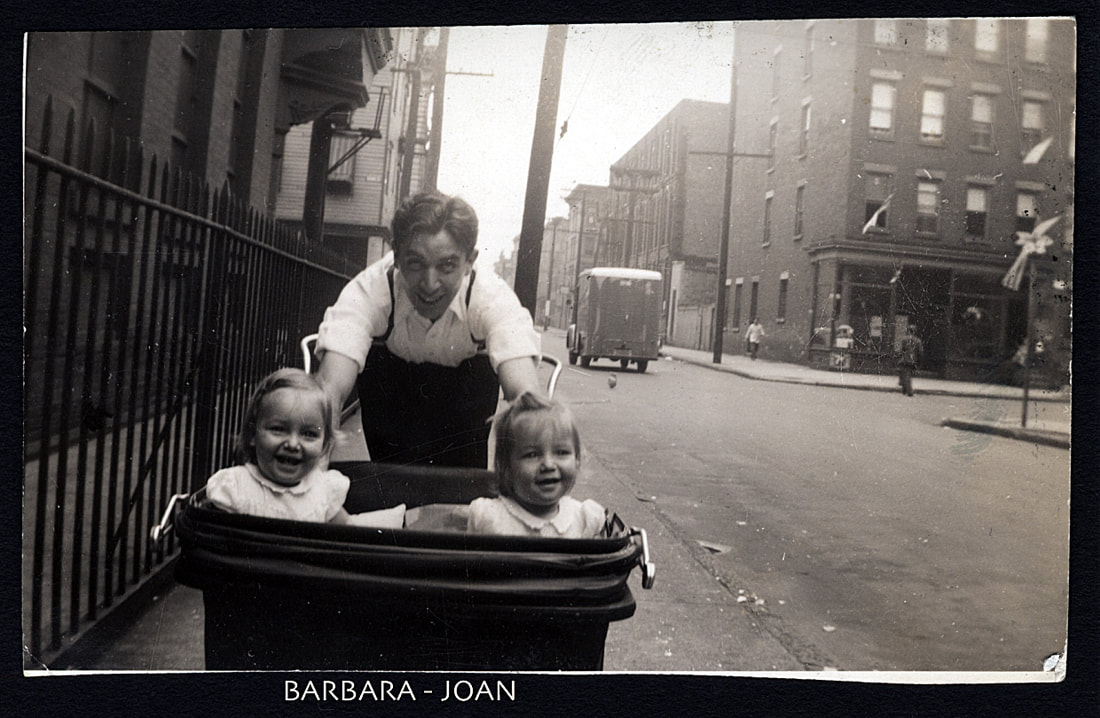
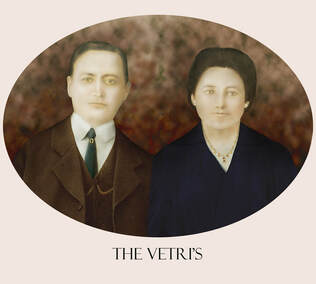
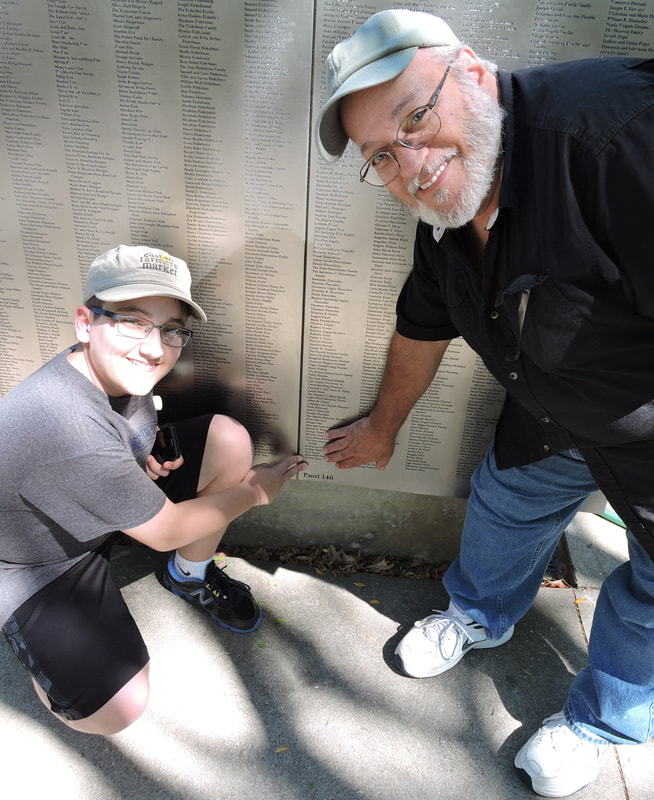
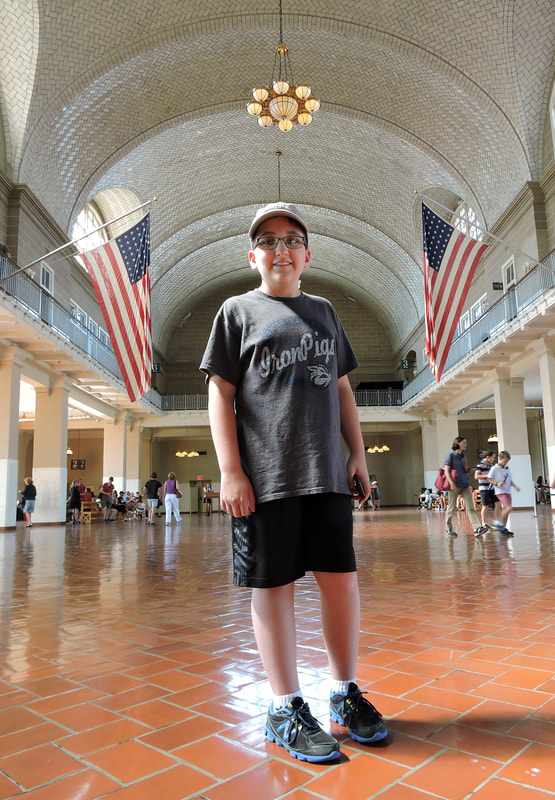
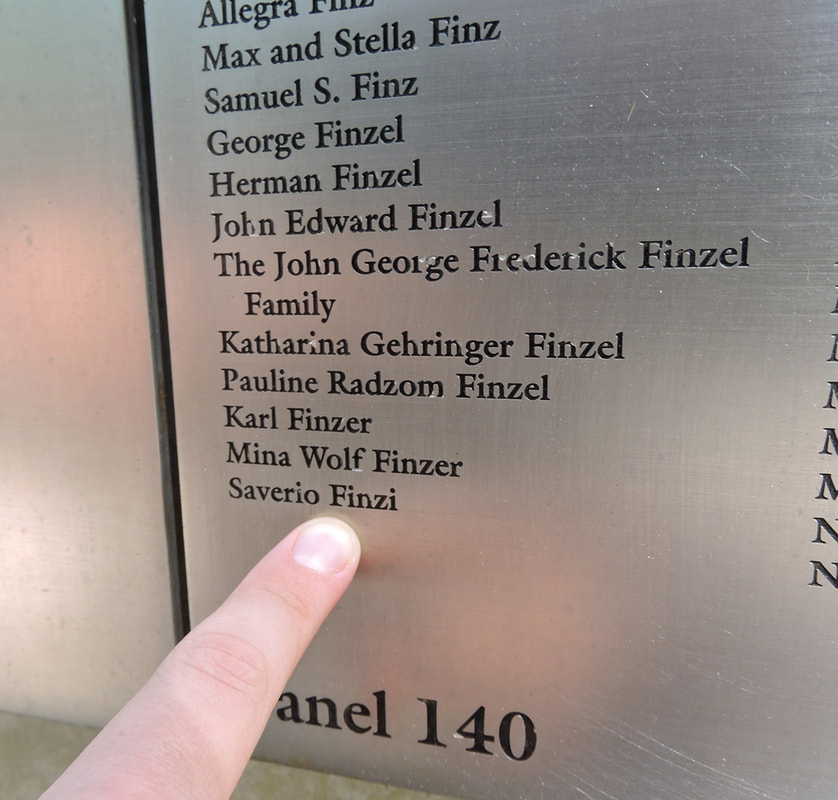
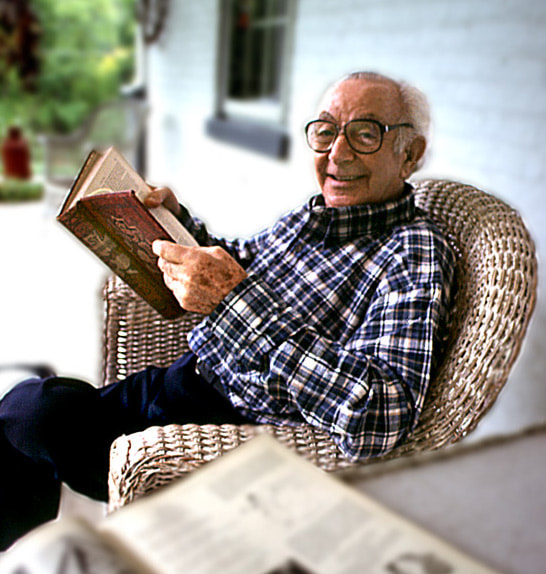
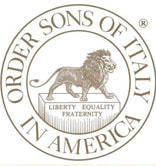
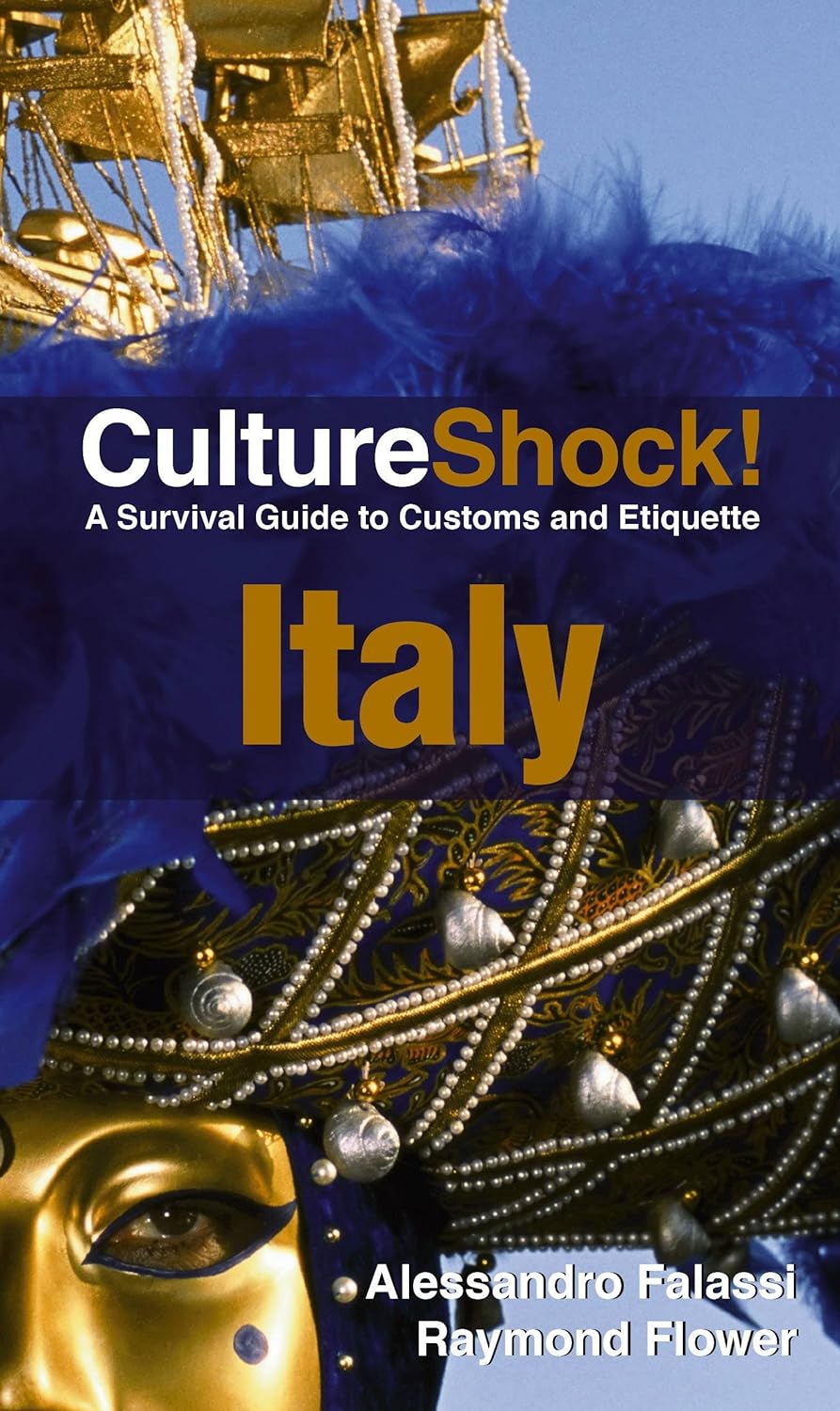
 RSS Feed
RSS Feed

